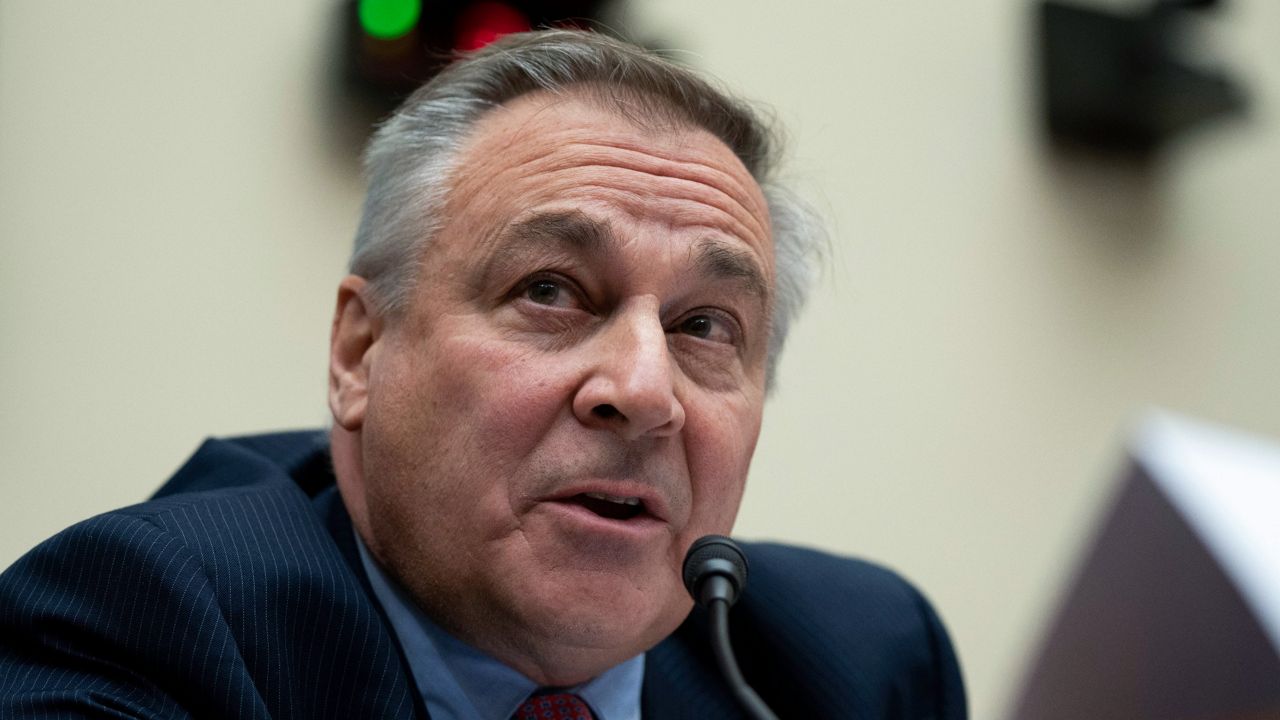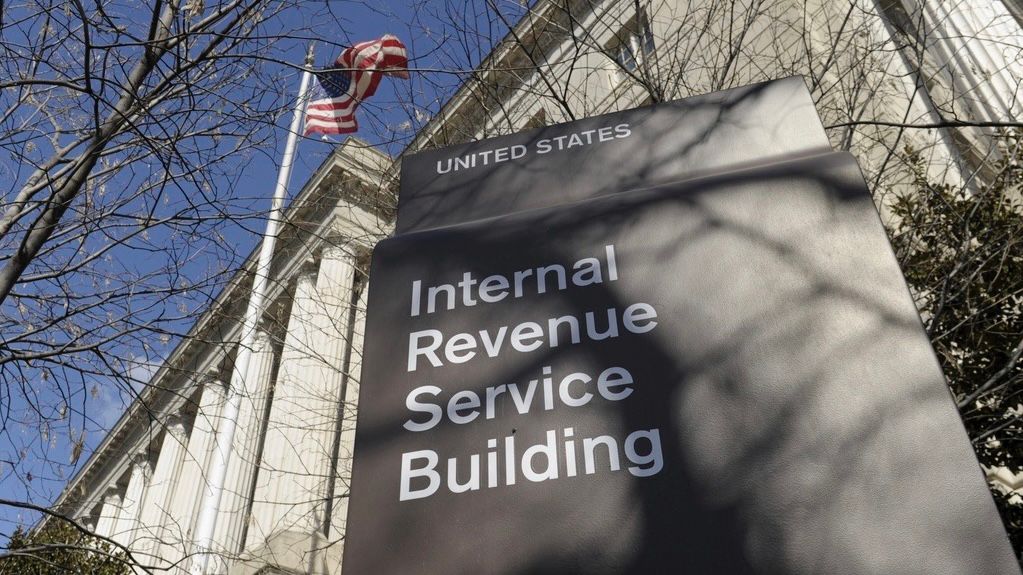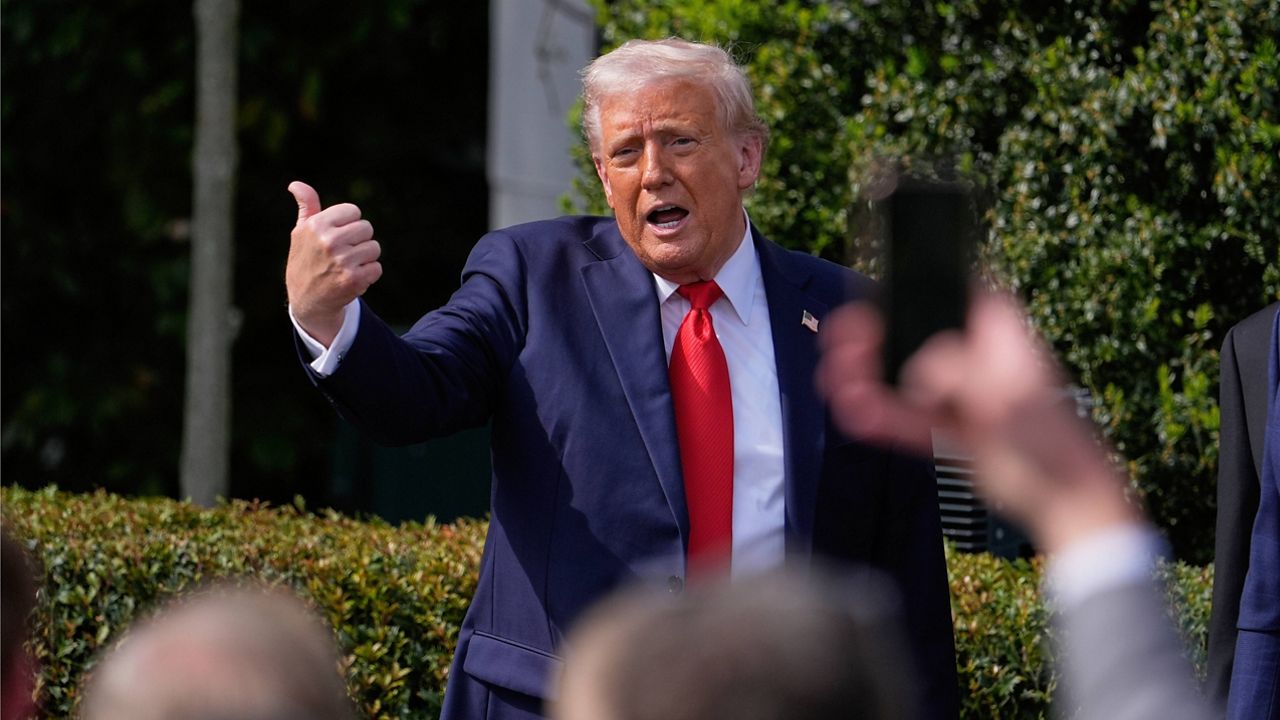The man hired to run cryptocurrency exchange FTX in the wake of its collapse last month testified on Capitol Hill on Tuesday that the multibillion-dollar company was run by “a small group of grossly inexperienced and unsophisticated individuals.”
What You Need To Know
- The man hired to run cryptocurrency exchange FTX in the wake of its collapse last month testified on Capitol Hill on Tuesday that the multibillion-dollar company was run by “a small group of grossly inexperienced and unsophisticated individuals"
- John Ray III told the House Financial Services Committee he had “never seen an utter lack of record keeping” like what he’s uncovered while investigating FTX’s demise and that there were “absolutely no internal controls whatsoever"
- The testimony by Ray, FTX’s new CEO, came a day after its cofounder and former chief executive Sam Bankman-Fried was arrested in the Bahamas, where FTX is headquartered, at the request of the U.S. government
- Before his arrest, Bankman-Fried, 30, had also been scheduled to testify virtually before the Financial Services Committee
John Ray III, who guided Enron through its own bankruptcy during a corporate fraud and corruption scandal in the early 2000s, told the House Financial Services Committee he had “never seen an utter lack of record keeping” like what he’s uncovered while investigating FTX’s demise and that there were “absolutely no internal controls whatsoever.”
Ray said employees would communicate invoices over the Slack instant messaging platform and the company would use the software QuickBooks to track its finances. “Nothing against QuickBooks. Very nice tool, just not for a multibillion dollar company,” Ray said.
The testimony by Ray, FTX’s new CEO, came a day after its cofounder and former chief executive Sam Bankman-Fried was arrested in the Bahamas, where FTX is headquartered, at the request of the U.S. government and hours after Securities and Exchange Commission and the Commodity Futures Trading Commission announced civil charges against him.
Federal prosecutors say that beginning in 2019, Bankman-Fried devised “a scheme and artifice to defraud” FTX's customers and investors, diverting their money to pay expenses and debts at his crypto hedge fund, Alameda Research, and to make lavish real estate purchases and large political donations.
The U.S. charged him with eight criminal violations, ranging from wire fraud to money laundering to conspiracy to commit fraud. Bankman Fried was also charged with making illegal campaign contributions totaling “tens of millions of dollars.”
The SEC alleges Bankman-Fried defrauded investors and illegally used their money to buy real estate on behalf of himself and his family.
A lawyer for Bankman-Fried, Mark S. Cohen, said Tuesday he is “reviewing the charges with his legal team and considering all of his legal options.”
Before his arrest, Bankman-Fried, 30, had also been scheduled to testify virtually before the Financial Services Committee.
“Unfortunately, the timing of his arrest denies the public the opportunity to get the answers they deserve,” said the committee’s chairwoman, Maxine Waters, D-Calif. “Rest assured that this committee will not stop until we uncovered the full truth behind the collapse of FTX.”
FTX was one of the world’s largest cryptocurrency exchanges, but after Changpeng Zhao, CEO of competitor Binance, suggested in a tweet last month that FTX was on shaky financial footing, there was a rush of customers who tried to withdraw their investments from FTX, and the company could not meet the demand.
After talks on a rescue deal with Binance fell through, Bankman-Fried announced his resignation.
Ray said it was quickly apparent to him after he took the job on Nov. 11 that FTX and more than 100 of its entities needed to file for Chapter 11 bankruptcy. The company lost more than $7 billion, he said.
The new FTX chief said the “major breakdown” was that FTX moved funds from FTX.com — the exchange for non-U.S. customers — to Alameda Research for investments and other disbursements.
“The operations of the FTX group were not segregated,” Ray said. “It was really operated as one company.”
Ray said more than $1.5 billion in loans and other payments were issued to “insiders” at FTX. In one instance, Bankman-Fried’s name appeared on a promissory note as both the issuer and recipient of a loan.
“We have no information at this time as to what the purpose or the use of those funds were,” Ray said.
While FTX’s downfall might have seemed sudden to outsiders, Ray said his investigation has found that the warning signs were apparent months, if not years, before.
“This is not something that happened overnight or in the context of a week,” he said.
Bankman-Fried told The New York Times last month that he “didn’t knowingly commingle funds.” He, however, admitted to making “a lot of mistakes” that led to the company’s troubles.
Ray said he does not find Bankman-Fried’s statements that several billions of dollars were mistakenly diverted from FTX.com to Alameda to be credible.
Ray said his investigation has been hampered by FTX’s lack of corporate infrastructure and record-keeping but that week-by-week his team gains “a better understanding of what occurred and the path forward.”
Waters said FTX’s “failure is not just noteworthy for its size, but for the company's total disregard for standard business practices, governance, risk management and criminal conduct.”
Rep. Patrick McHenry of North Carolina, the committee’s top-ranking Republican, said the company’s debacle was evidence regulation is needed for cryptocurrencies.
“I believe in the promise of digital assets and those around the world building on blockchain technologies, and that's why I've worked and will continue to work to provide clear rules of the road for the digital asset ecosystem here in the United States,” he said. “And that's how we protect American consumers and investors in this marketplace and allow innovation to occur here in the United States.”
McHenry, who is in line to lead the panel when Republicans take control of Congress next month, also blamed SEC Chair Gary Gensler for failing to apply securities laws to crypto trading platforms. McHenry said he plans to call on Gensler to testify before the committee “early and often” next year.
The SEC did not immediately respond to a request for comment from Spectrum News on Tuesday.
Rep. Brad Sherman, D-Calif., meanwhile, attacked the cryptocurrency industry as a whole.
“For five years, I've been trying to ban American investments in crypto,” he said. “ … My fear is that we will view Sam Backman-Fried as just one big snake in a crypto Garden of Eden. The fact is crypto is a garden of snakes.”
The Associated Press contributed to this report.
Ryan Chatelain - Digital Media Producer
Ryan Chatelain is a national news digital content producer for Spectrum News and is based in New York City. He has previously covered both news and sports for WFAN Sports Radio, CBS New York, Newsday, amNewYork and The Courier in his home state of Louisiana.








